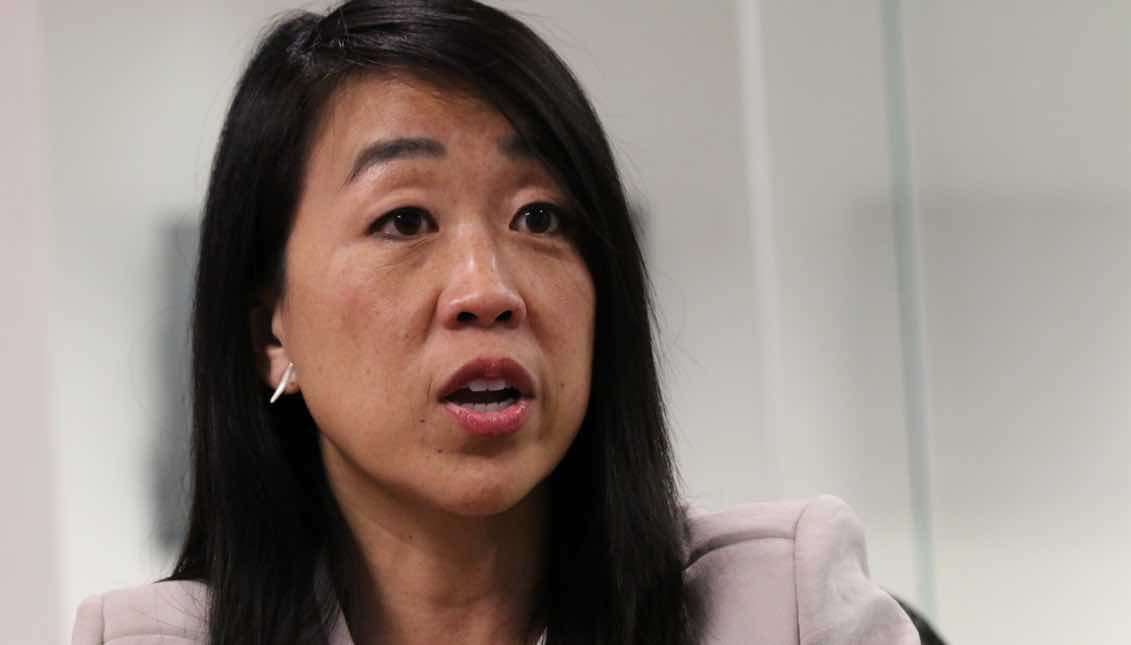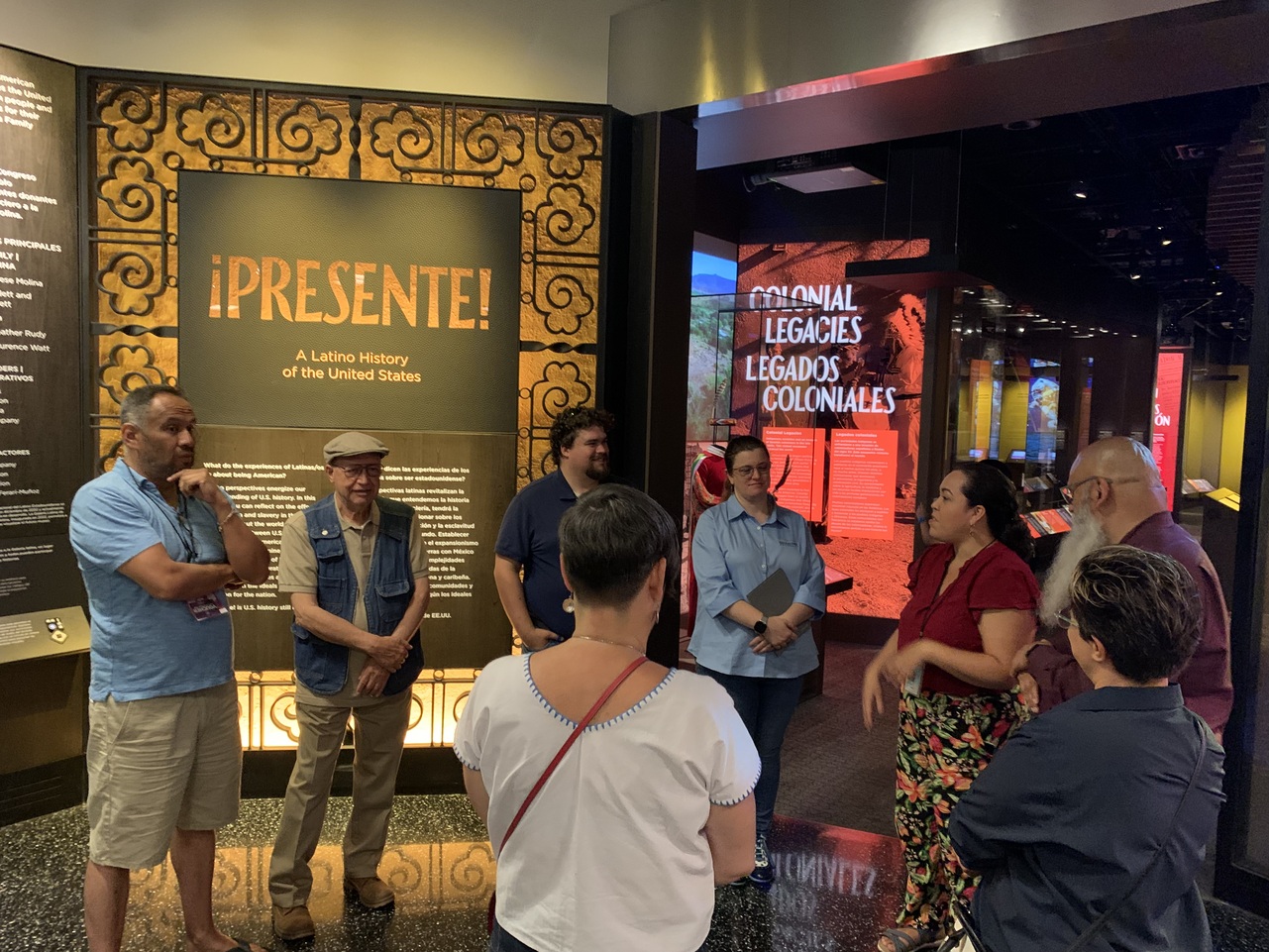
Helen Gym: 'I am outside the system and I want solutions'
A former elementary school teacher, former Notebook editor and co-founder of Parents United for Public Education, City Council candidate Helen Gym has made a name for herself as a fierce education activist.
It was no surprise that back in February she entered the City Council race with the endorsement of the Philadelphia Federation of Teachers (PFT) in her pocket. Since then she has secured the endorsement of more labor groups: the Pennsylvania Federation of the Brotherhood of Maintenance of Way Employees Division, Teamsters Local 502, the Commonwealth Association of School Administrators; AFT Local 2026- the Faculty and Staff Federation of Community College of Philadelphia; and the AFSCME District Council 47.
“I am used to organizing communities that have long been ignored, pushed to the side and to get them to situations where they can access the resources that they need,” Gym said.
She believes there is an enormous level of civic engagement in Philly, and that the people at City Hall haven’t been able to respond to that.
“My candidacy wasn’t just motivated by the negative aspects. I’ve been really inspired by the amount of civic energy that has happened around schools and neighborhood life, new and revived attention from a host of communities around the city that talked about how they need Philadelphia to be more livable,” Gym said.
What was your process in deciding to run for City Council?
What hit me hard was when we closed down the 24 public schools in Philadelphia in 2013. Those jobs were lost, the 7,000 children who attended those schools went to others that were no better than the ones they attended previously. Those buildings were turned over for almost nothing, most of them in vulnerable income and in predominantly African American communities in our city. When public spaces move into private market there is no opportunity for people to weigh in on what happens, and that is a very big serious lesson that we need to be able to understand. We need to value and support the spaces that we have if we are going to see real change in our communities. It was a divestment of public resources out of communities that needed it the most. That to me was a big wake up call.
If elected you would become the first Asian American woman on Philadelphia City Council. What do you think your election would mean for the Asian community in Philly?
A lot of my work comes out of the Asian-American community, working within a community that has been long marginalized in the city and is also very vulnerable. It was shaped by stereotypes and biases in terms of how we are perceived, and how we are treated, and we had to fight tooth and nail for our existence. Also for visibility and voice in the city. And on that level Latinos and Asian Americans, in particular, share a common experience around it. I am very much informed out of that experience and I try to think about it as I go into other neighborhoods or other communities that are also seeking the same thing. I think it is less that I am an Asian American, than I have been informed by my experience as an Asian American to better help me become a candidate that better serves a wide swath of people in our city.
You are well known for your record as an education activist. What can you tell us of your civic engagement in other local issues?
Folks should know that before schools a lot of my work came from the community where we are working for voice and visibility. We are trying to advance and take down perceptions of Asian Americans as being the model minority, we are trying to advance data and information that Asian Americans in Philadelphia suffer from very high levels of poverty, need access to health care, struggle with language access, are highly immigrant, highly diverse as well. They need great public schools and that bring us into coalition with a large body of people within our city. I care about schools a lot because I think they are the strongest anti-poverty initiative that we as a society can undertake. I value jobs as well in our city, and coming out of the immigrant community where you don’t often gain access to the traditional pipeline of jobs, it reinforces the importance of the fact that 98 percent of jobs in Philadelphia are actually small businesses. We need to be thoughtful about businesses that are responsive to the majority and responsive to high levels of need, not just about fitting policy according to the Chamber of Commerce or huge corporations. Immigrant communities live and thrive off of small businesses and that is good for the city overall.
What other priorities are part of your agenda?
We want to think about structuring taxes that are responsible, making sure that we have community base that support small businesses, and that we get language access out to small businesses in the community so that everybody has a chance to have information. A big issue for me is also investing in neighborhoods, it is great to have a Center City that is revitalized and becoming more vibrant, but to see the contrast about what is happening in many of our neighborhoods is really painful. More importantly it is less that we don’t have programs and policies on the books, it is that we need to organize our communities that have been marginalized to gain access to resources. The other thing I think of a lot is the idea of a connected city. I care a lot about a city in which people are not trapped in their individual circumstances. That has to do with making sure streets are safe and walkable, that we have bike lanes for the 20 percent of Philadelphians who don’t own a car. It also means that I want language access because we want to be a global city. Along with investments in light rail and transit.
Latinos and Asian Americans have been accused to low voter turnout. What outreach have you done with voters in general during your campaign trail to energize civic participation?
For more than two decades, I have worked for and with community organizations to broaden civic engagement for immigrant and non-English speaking communities. There is a difference between low voter turnout (often interpreted as apathy) and lack of voter access. For many immigrant and/or non-English speaking communities, the terrible lack of language access at the polls is a serious barrier to voting. We have worked with organizations and supported legal efforts to ensure language access at the polls and to improve voting in the city. As someone who comes out of immigrant community struggles in this city, there isn’t a single City Council candidate running who has as deep a history with immigrant communities as I do, or can navigate issues like the fight for drivers’ licenses or ending abusive deportation practices and promoting a sanctuary city as I have done. As an Asian American candidate it’s particularly important to me that this platform is a shared effort with the Latino community. Our struggles for self-determination, visibility and voice in this city are a shared struggle. I am putting forth a multimedia effort to outreach to the Latino community. Even with limited funds, we’re working to get onto radio and print. I am continuing to support and promote organizations and groups I have worked with over the years to ensure that this campaign works to end stereotypes and biases about our communities.
There are at least another 18 Democrat candidates running for at-large seats at City Council. What is your strategy to win as the election day gets closer?
I have worked for the last 20 years to advance issues at the citywide level. I am obviously an outsider to the system but I am not an unknown. I am activating my citywide network, utilizing many community organizations, parent and education groups, educators and others who understand like no other that the stakes are enormously high in this election. The possibility of putting someone into office who will lead a community-driven agenda – not just follow one – has galvanized groups all across this city. We are going to be smart and strategic about ward outreach and getting onto ballots of course, but like any election, it will come down to turnout.
Do you support Mayor Nutter's' property tax increase to provide funds for schools? Why or why not?
I support the Mayor’s call to fund schools this year and with items that are within Council’s power to control and direct. But $105 million is too heavy a lift for any one group. That’s why last week I published a counter to the Mayor’s proposal that got schools to their $105 million local funding request, provided recurring and sustainable revenue (as opposed to a one-shot fix) and focused on actions entirely within City Council’s control. My proposal promotes a shared funding approach among businesses and large non-profits. It reduces the Mayor’s proposed tax hike to a $3.75/month median property surcharge that would be eliminated the following year when Governor Wolf’s proposed property tax relief bill goes through. I won’t just give schools money without any accountability. I will be holding our District accountable to deliver the money so that children and classrooms benefit. I am working to put a nurse back in every school, lower class sizes, provide counselors and re-open school libraries.










DEJE UN COMENTARIO:
¡Únete a la discusión! Deja un comentario.